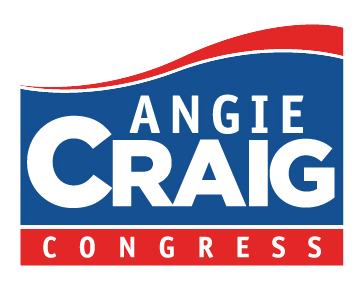Feb 12, 2020
By: Casey Ek
President Donald Trump has a new piece of bipartisan legislation on his desk after Rep. Angie Craig, who represents Minnesota’s Second Congressional District, alongside two Republican lawmakers and a Democrat, put forth a bill last week aimed at significantly reducing government spending.
The bill, called the Payment Integrity Information Act of 2019, seeks to put controls in place for improper government payments.
In fiscal year 2018, the Government Accountability Office estimated that improper payments throughout the federal government were just over $150 billion with the majority of those coming from Medicare, Medicaid and the earned income tax credit. Since 2003, when agencies were first required to report improper payments, improper payment estimates were over $1.4 trillion.
Craig, who spoke to the Herald last Friday after the bill passed the U.S. House of Representatives on Wednesday, Feb. 5, believes the across-the-aisle cooperation is a mark of hope for alleviating partisan politics.
“If we work to find common ground in this country, we can find it,” Craig told the Herald. “This town [Washington, DC] doesn’t make it easy to find it.”
The bill, which signals the first time any of Minnesota’s freshmen lawmakers have had a bill reach the president’s desk, gained the cosponsorship of Reps. Mark Meadows (R-NC), Cheri Bustos (D-IL) and Greg Gianforte (R-MT).
Whether President Trump decides to sign the bill into law or forego a veto for 10 days, the Payment Integrity Information Act of 2019 puts in place checks that “force agencies to learn from past mistakes,” Craig said.
Taken from a release from Craig’s office, the Payment Integrity Information Act would:
• require agencies to undertake additional efforts and develop plans to prevent improper payments before they happen,
• improve the way agencies identify programs with the highest risk of improper payments,
• require the Office of Management and Budget and the Council of Inspectors General on Integrity and Efficiency (CIGIE) to issue guidance to improve annual reporting on agencies’ compliance with improper payment statutes,
and
• create a working group that will enable federal agencies to collaborate with each other and non-federal agencies, such as state governments, to develop strategies for addressing key drivers of improper payments, such as fraud and eligibility determinations in state-managed federal benefits programs.
